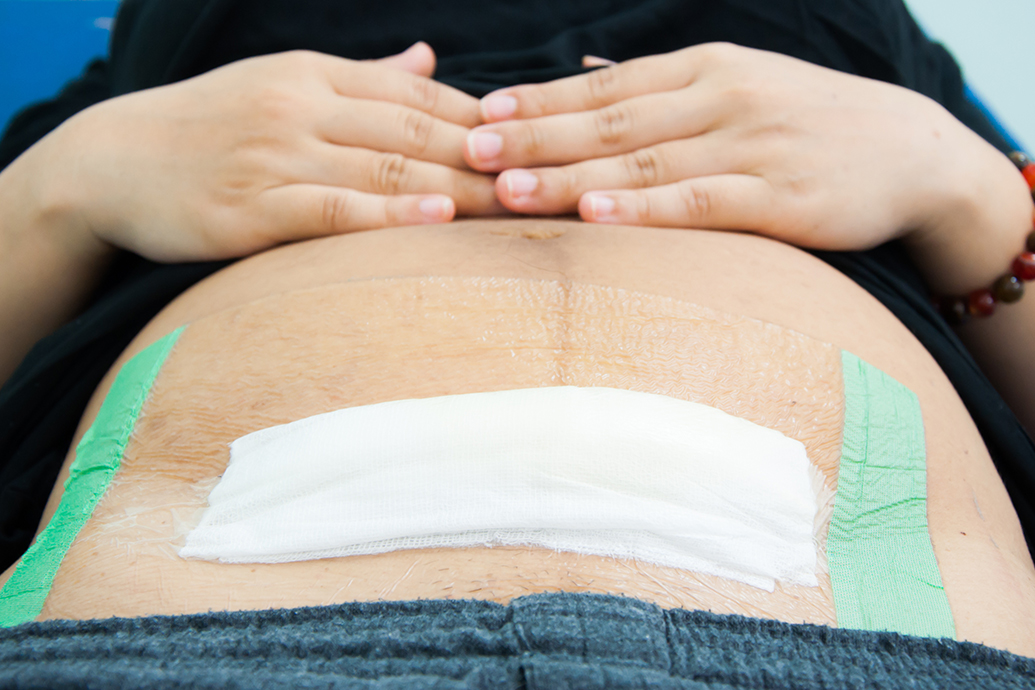When is My C-Section Infection Considered a Malpractice Case?
Welcoming a baby into the world is a very happy occasion for many families. With delivery by c-section accounting for over 30% of all births in the United States, it is certainly a more common procedure today. As a major surgical procedure, a c-section requires diligent postoperative care by your doctor to prevent or treat a c-section infection. However, acts of negligence can occur that lead to serious complications if an infection is left untreated.
If you believe you were a victim of medical malpractice during or after your c-section delivery, our birth injury attorneys are ready to step in to help you file a claim.
Outlining the Risks for C-Section Infections
A c-section delivery requires your doctor to make large incisions across your lower abdomen and into your womb so your baby can enter the world. Both incisions must be stitched back together with dissolvable stitches to begin the healing process.
There are many risks that may increase a mother’s chance for a c-section infection, including:
- Obesity;
- Using tobacco during pregnancy;
- Not receiving adequate prenatal care during pregnancy;
- A previous c-section delivery;
- Ruptured uterus;
- Having an epidural;
- Having a larger incision size;
- Having diabetes or gestational diabetes;
- Bacterial infection in the mother’s amniotic fluid;
- Using certain medications such as corticosteroids;
- Having a prolonged c-section procedure; or
- Having an emergency c-section.
Your Doctor’s Role in Preventing a C-Section Infection
Any significant surgical wound is prone to infection, and all medical professionals must be attentive to any complications. There are three ways your care team can prevent an infected c-section incision from occurring, and they include:
1. Administering precautionary antibiotics. If you have a predetermined risk for a c-section infection, your doctor may suggest prophylactic antibiotics before the procedure. These should only be given if you have a higher risk for infection, or are already showing signs of an infection.
2. Monitoring the c-section scar. Your doctor has a duty to monitor your incision site to make sure that it is healing properly. If there is any sign of a c-section infection, your doctor should immediately begin treating it.
3. Promptly treating any arising infection. If your doctor diagnoses the presence of an infection, they have a duty to treat it right away. Standard infection symptoms include a fever, tenderness at the incision site, redness, swelling, pain, pus or other discharge, or the hardening of skin. Delaying the treatment of an infected c-section incision will require further medical attention and may be a viable medical malpractice claim.
The Duty of Care for Patients After a Major Surgery
Following surgical procedures, your doctor has a duty to care for you before, during and after the procedure is complete. This includes dressing and cleaning any incisions, administering proper medication, monitoring vital signs and checking in on patient progress following the procedure. If your doctor fails to diagnose, fails to treat or completely delays treatment without a just cause, they may be held negligent for your c-section incision infection.
Getting Help from a Birth Injury Attorney
As parents ourselves, we understand the flurry of activity, excitement and apprehension that comes from welcoming a baby into the world. What you cannot prepare for is a medical setback that comes from the hand of your doctor. As experienced birth injury attorneys, we are ready to step in to help you decipher the negligent actions surrounding your case.
Ready to tell us about your case? Contact our attorneys today to begin fighting for your family’s future after a birth injury.
Missouri Medical Malpractice Lawyer
If you have suffered as a result of medical malpractice, contact our legal team right away. Waiting to seek legal representation can prevent you from filing a claim and receiving the compensation you deserve.
Contact Zevan Murphy today.

